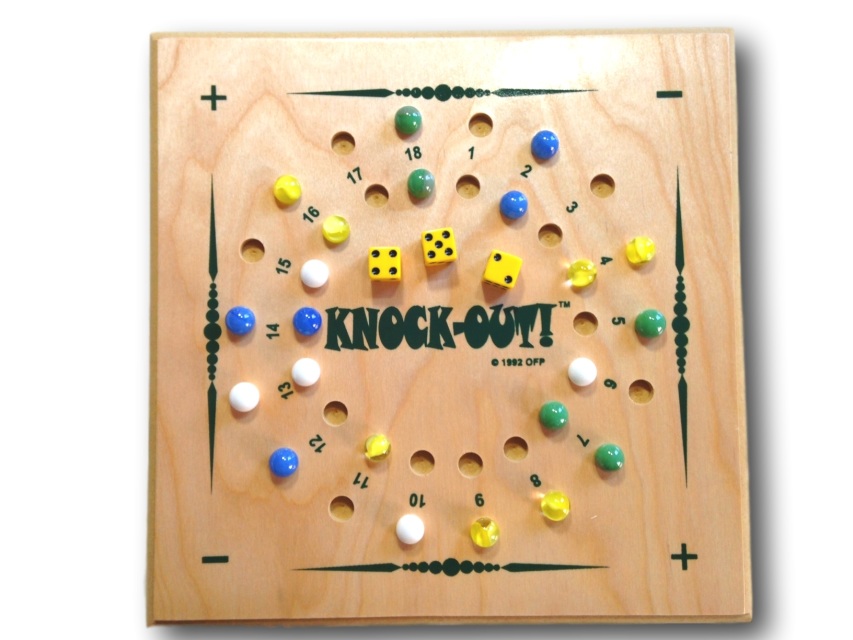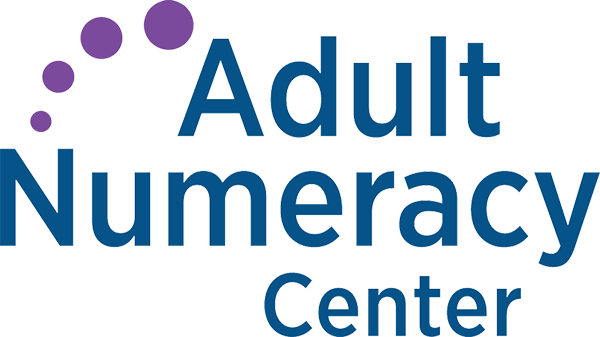Games for Beginning Math Learners

by Melissa Braaten
Why Games?
Almost every culture in the world has used mathematical and spatial reasoning for recreation. In other words, humans use math for fun, and all adult learners deserve to have access to recreational math for this reason, in addition to other educational benefits. Dice, card, and board games often employ important reasoning skills and encourage the use of strategy and self-reflection, or metacognition, to decide whether the strategy one is using could be improved. Many games incorporate specific mathematical skills, and most provide exposure to the very challenging concept of probability.
Beginner math learners may not have a ton of exposure to mathematical games if their limited skills or math anxiety have caused them to avoid them in their social lives. Playing games in class can provide a comfortable and scaffolded way to introduce students to different games, which they might later choose to play for fun with families and friends. Games can help students to relax, lessen math anxiety, and build community as long as they are structured to minimize competition with low stakes and a supportive atmosphere.
Dan Finkel’s Criteria for Math Games
Games make up a significant part of my beginner level math class. Dan Finkel, the founder of the website Math for Love and a huge advocate for games in the math classroom, suggests a few criteria for high quality math games. He writes that games should involve:
- Student choice: Students have to have the ability to make choices within the game, so they can develop and refine strategies. Games that are based only on chance do not involve student choice.
- Math should be “the engine of the game.” In other words, the game itself involves mathematical, logical, or spatial reasoning, rather than using math as a sort of task that must be completed before one gets to play the game (I remember Speedway Math of my childhood, in which you had to solve math facts in order to race cars. In that case, math was only a hurdle you had to get over to play the fun racing game. Instead, we are looking for games where the math itself IS the game and is itself rewarding.)
- Simple to learn and easy to play. I have a binder of games I can choose from. I return to many of them frequently. Playing the same games over and over helps students build strategies, but it’s also important to have variety to keep interest high.
See more about Dan Finkel’s approach to math games and find a collection of his favorites at https://mathforlove.com/lessons/games/
Adding Scaffolding and Differentiation
With beginner level students, some games will require modification and scaffolding. For example, when I was playing a version of “Guess my number” with my beginner class, I noticed they had a hard time using the hundreds chart to make sense of my clues (for example, “My number is less than 40.”) The next time we played, I used a large number line on the wall of the classroom, and we placed arrows on the wall to show which direction was needed for numbers to be larger or smaller. I have modified many of Dan Finkel’s and other games that use 3- or 4-digit numbers for my beginning students by simply using two-digit numbers instead. Since many of my beginning students struggle with working memory, I often make note of relevant clues and information on the board during whole class games.
Partner games are also fun. When possible, I try to pair people who are roughly matched so that they will both experience some wins, or I partner with someone myself so I can adjust my playing level to give them the right amount of challenge. Well-designed games often involve a mixture of skill and chance, so that while there is an incentive to improve one’s strategy, the stronger player does not always win.
Periodically, I ask students to reflect on and share their strategies for familiar games, and to teach familiar games to newcomers to the class. If students are very familiar with a game, I will sometimes ask students to facilitate a whole class game, like Codebreaker, for example.
Some Favorites
Whole class games

Don’t Break the Bank: For my beginners, I use two digits and they have to get close to 100 without going over. I put the game boards in plastic sleeves and use white board markers so we can play repeatedly.
Fill the Stairs: A fantastic game that incorporates number sense with two-digit numbers and an emerging understanding of probability. This is another game that works well in plastic sleeves to make the board reusable.
Codebreaker: A simplified version of Pico-Fermi-Bagel, using colors instead of verbal clues. The teacher thinks of a code (I use 3-digit codes for my beginners, longer codes for intermediate classes). Students take turns guessing, and the teacher circles the digits in their guesses in different colors, depending on whether the digit appears in the teacher’s code and whether it is in the correct place. Great class ender or opener that uses logical reasoning.
Guess My Number: There are lots of variations of this game. Provide students with a hundreds chart or other visual (such as a number line) to keep track of what they learn from the clues. The language of inequality (My number is less than 35., My number is greater than 20.) can be very challenging for some students, and this game provides good practice.
Broken Calculator: I project a calculator onto the board and cross out the keys they are not allowed to use. It can be helpful to use calculators that display the input (like the TI-30XS, used for GED/HiSET) rather than simple desktop calculators because some students with disabilities have a hard time remembering their inputs.
Small groups

Knock Out! A class favorite, which involves strategically decomposing small amounts to knock your opponents off the board. Available for purchase from Muggins Math.
Simple card games, such as Sevens, Crazy Eights, or Go Fish
Tiny Polka Dot: A card set available for purchase that comes with a number of games appropriate for beginner level math learners. Available from the Math for Love website.
Partner games
Box the Numbers: An interesting variation on the traditional Dots and Boxes game.
Nim: An ancient game with a ton of variations.

Melissa Braaten is an adult education instructor at Catholic Charities Haitian Multi-Services Center in Dorchester, MA. Melissa has taught ASE and pre-ASE math and reading, as well as ABE writing, computer skills, and health classes. Melissa also is a training and curriculum development specialist for the SABES Mathematics and Adult Numeracy Curriculum & Instruction PD Center at TERC. She is the author of many articles for Math Musings, our Adult Numeracy blog.
